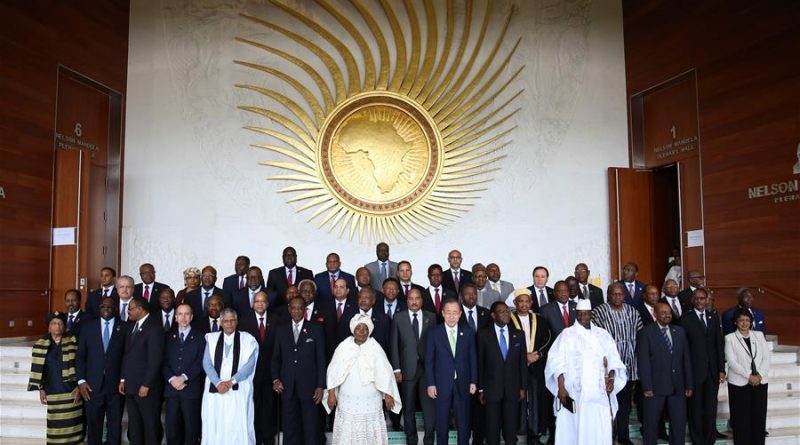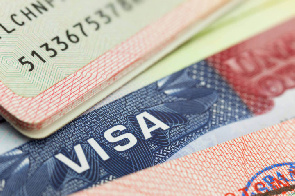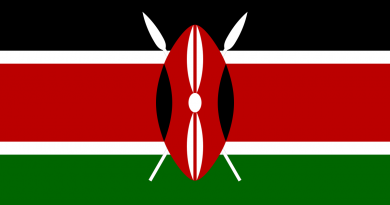AU Day: History & Background of Africa’s Regional Integration Efforts
The African Union is the successor organization to the Organization of African Unity (OAU). The OAU was established on 25 May 1963, with its headquarters in Addis Ababa, Ethiopia. At that Conference of Independent African States, the OAU Charter was signed by the Heads of State and Government of 30 of the 32 independent African States at the time. The remaining two, Togo and Morocco signed before the end of that year. Morocco later withdrew from the OAU in 1985, after admission of Western Sahara. It is now the only African State that does not belong to the 54 Member African Union. Madagascar and the Central African Republic are currently suspended due to coups d'état that ousted sitting presidents.
The Constitutive Act of the African Union was adopted during the Lomé Summit of the OAU on 11 July 2000. The Lusaka Summit in 2001 (37th Ordinary Session) agreed to a transition period of one year (with the option to extend this period if necessary) while Member States and the General Secretariat embarked upon intensive consultations to prepare for the inaugural meeting of the African Union in South Africa in July 2002.
An important development in the history of the OAU was the adoption, in 1980, at an OAU Extraordinary Summit, of the Lagos Plan of Action. The commitments in the Plan and the Final Act of Lagos were translated into concrete form in Abuja, Nigeria in June 1991 when the OAU Heads of State and Government signed the Abuja Treaty establishing the African Economic Community (AEC). Since May 1994, the OAU therefore operated on the basis of the OAU Charter as well as the AEC Treaty, and the organization was officially referred to as the OAU/AEC. After signature of the Abuja AEC Treaty, the Assembly of Heads of State and Government directed the Committee on the Review of the Charter (established in 1979) to meet and review the OAU Charter with a view to bringing it in line with the Abuja AEC Treaty. Despite numerous attempts since 1979, OAU Member States could not agree on amendments to the 1963 Charter. Eventually an Extraordinary Summit of the OAU held in Sirté, Libya on 9 September 1999 (Sirté Declaration) called for the establishment of an African Union in conformity with the ultimate objectives of the OAU Charter and the provisions of the Abuja AEC Treaty , giving rise to the Constitutive Act of the African Union, in Lome, Togo on July 11 2000.
The Constitutive Act of the African Union notes (in Article 33(2) that “The provisions of this Act shall take precedence over and supersede any inconsistency or contrary provisions of the Treaty establishing the African Economic Community.” Thus the subsequent Protocol to establish a Pan-African Parliament, which was originally envisaged in Articles 7 and 14 of the AEC Treaty, is a protocol to the AEC Treaty andnot to the Constitutive Act establishing the AU.
The Lusaka Summit in 2001 (37th Ordinary Session) that prepared for the transition from the OAU to the AU also took a decision that the Economic and Social Commission (ECOSOC) reference in the AEC Treaty “will cease to exist at the end of the transition period” to the African Union. In its place the AU established an Economic, Social and Cultural Council (Article 22) as “an advisory organ composed of different social and professional groups”.Unlike the Pan-African Parliament, ECOSOCC will not be established through a legally binding protocol, treaty or convention, but by the approval of the Assembly of a set of statutes.
The Lomé Summit in 2000 also acknowledged the Conference on Security, Stability, Development and Cooperation in Africa (CSSDCA) as creating a synergy between the various activities undertaken by the OAU/AEC that should help to consolidate the work in the areas of peace, security, stability, development and co-operation. A subsequent Memorandum of Understanding on the CSSDCA was adopted by the First Standing Conference on Security, Stability, Development and Cooperation in Africa, held in Durban in July 2002, as part of the OAU/AU Summit.
During the July 2001 Lusaka Summit meeting in Zambia, African leaders adopted the New Partnership for Africa’s Development (NEPAD). It was ratified by the African Union (AU) in 2002 to address Africa's development problems within a new paradigm. NEPAD's main objectives are to reduce poverty, put Africa on a sustainable development path, halt the marginalization of Africa, and empower women. The Partnership provides a comprehensive, integrated development plan that addresses key social, economic and political principles for the continent. It entails a commitment by African leaders to African people and the international community to place Africa on a path of sustainable growth, accelerated by the integration of the continent into the global economy. NEPAD determines that peace, security, democracy, and good economic and corporate governance are preconditions for sustainable development and proposes a system of voluntary peer review and adherence to codes and standards of conduct. At the 38th (and final) Summit of the OAU in Durban, July 2002, Heads of State and Government issued a NEPAD Declaration on Democracy, Political, Economic and Corporate Good Governance. Durban also hosted the first Assembly meeting of the African Union that followed directly after the OAU Summit. The Durban meeting also approved the NEPAD African Peer Review Mechanism (APRM) as well as a protocol relating to the establishment of a Peace and Security Council.
The brief history of the New Partnership for Africa's Development (NEPAD) indicates that it is the result of three parallel initiatives. The first is the Millennium Africa Recovery Plan (MAP), led by former South African President Thabo Mbeki and unveiled at the World Economic Forum in Davos in January 2001. The second initiative is the Omega Plan, crafted by the former President of Senegal, Abdoulaye Wade, and presented to the Summit of Francophone African leaders in Cameroon in January 2001. MAP and the Omega Plan were then combined to give birth to a third initiative the New African Initiative (NAI) that then led to NEPAD in 2001.
All three initiatives shared a common interest in increasing the pace and impact of Africa's development. While these initiatives shared common characteristics, there were also differences reflecting the regional and other priorities of the enactors. Compromises had to be made in order to merge the three proposals into one initiative. NEPAD thus reflects the compromises involved in arriving at a single initiative.
Since its initiation, NEPAD has been promoted widely both within Africa and in the industrialised North. NEPAD is now recognised as Africa's development plan by all the governments of the North, and the international financial institutions, and by many international governance institutions like the United Nations. NEPAD is widely seen as the mechanism through which support to Africa's development efforts can be best delivered. Thus, the NEPAD process has come to be accepted not only by African countries and RECs but also by Africa's development partners as the framework mechanism for their development efforts.
The founding member countries of NEPAD are South Africa, Nigeria, Algeria, Egypt and Senegal.
During the 2nd Extraordinary Assembly meeting in Sirté, Libya on 28th February 2004, AU Heads of State adopted a Solemn Declaration on a Common African Defence and Security Policy.
The African Union (AU), the Economic Commission for Africa (ECA) and the African Development Bank (AfDB) have a long history of collaboration and in its 25th Ordinary Sessions in Addis Ababa, Ethiopia, from 24 to 26 July 1989, the OAU endorsed in its resolution AHG/Res. 179 (XXV) the establishment of the Joint Secretariat of the African Economic Community consisting of OAU, ECA and AfDB.
We, Mirus Team Wish all Africans A HAPPY AFRICAN UNION DAY. GOD BLESS OUR COUNTRIES GOD BLESS AFRICA!!
We would like to Know
1. What African Union Day means to you ?
2. Is there any Benefit in Celebrating it?
3. Do you think our leaders have archived their goals?
4. What are the problems we as the youths of Africa are facing?
5. Do you think the Economy is helping?
6. Do you think the leaders are feeding on us?
7. If you had one wish, what will you change about Africa?



